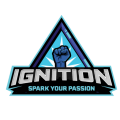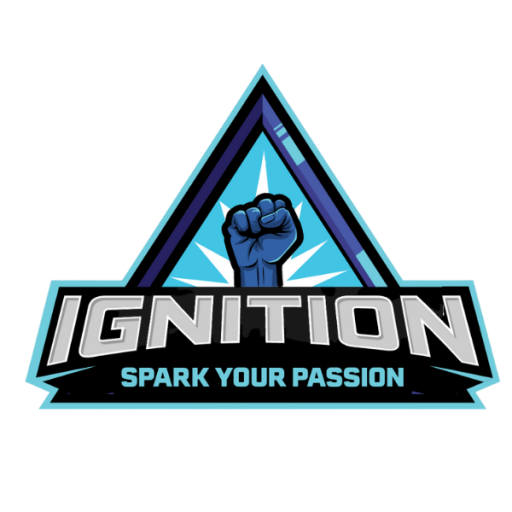Receiving an autism diagnosis for your adult child can bring a myriad of emotions – from relief and validation to uncertainty and concern. While the diagnostic journey may have challenges, it’s also an opportunity for growth, understanding, and discovering the right support for yourself and your child. In this blog post, we’re exploring the various aspects of navigating life after an autism diagnosis for your adult child, offering insights, resources, and guidance for parents and caregivers.
Understanding the Adult Autism Diagnosis
The first step on this journey is to understand the autism diagnosis itself.
Many adults receive an autism diagnosis later in life, often after years of navigating a world that may not have fully understood their unique experiences. Sometimes, they may come across information or hear about other people’s experiences and think, ‘That sounds like me’. It may also be someone close to them or a health professional identifying certain characteristics common for people on the autism spectrum.

According to BetterHealth, autism is a neurodevelopmental condition that affects how the brain processes information. Common characteristics can include:
- Difficulty with social interactions and relationships
- Varied speech patterns, literal interpretation
- Engaging in repetitive actions or routines
- Fixation on a certain subject or hobby
- Heightened or reduced response to sensory stimuli
- Resistance to changes in routine or environment.
Learning about autism, its characteristics, and how it manifests in adulthood is a crucial foundation for parents to be able to provide meaningful support. Check out resources like thespectrum.org.au or amaze.org.au. You can also seek out local support groups within your community or online.
Validation and Embracing Neurodiversity
For both parents and their adult children, an autism diagnosis can be a powerful tool for validation. Understanding that there’s a neurological basis for how your adult child experiences the world can also bring a sense of relief. This is especially true for parents who have wondered if there has been ‘a reason’ for the characteristics and behaviours they’ve witnessed for many years – most likely since childhood.
When we talk about embracing neurodiversity, we mean acknowledging and celebrating the diverse ways individuals’ brains work. It’s about recognising the strengths and challenges associated with autism and appreciating the value of different perspectives.
Open Communication
Communication is key during this period of adjustment. Creating a safe space where your adult child feels comfortable expressing their thoughts, feelings, and concerns is essential. Open conversation fosters understanding and helps both parties navigate the changes that may come with the diagnosis.

Here are a few tips to help you achieve open communication:
- Talk to them as you would any other adult, not a child
- Be clear, concise and say what you mean
- Practice being an active listener, ensuring that they feel heard
- If you ask them a question, always wait for a response
- In group settings (family events, at a school or with health professionals), never speak as though they’re not in the room.
An autism diagnosis in adulthood is something that you’ll both have to navigate together, and one of the best tools available to you as a parent is open communication.
Exploring Personal Strengths and Interests
Autism often brings with it a unique set of strengths and interests.
Encourage your adult child to explore and embrace these strengths. Whether it’s a passion for a specific subject, artistic talents, or a deep dive into a particular hobby (like gaming or esports!), these interests can become sources of joy, fulfilment, and even potential career paths.
Seeking Professional Guidance
After an autism diagnosis, seeking professional guidance is beneficial for both the individual and their parents or caregivers. The diagnosis can bring with it a range of emotions as well as life changes for all parties, as well as the extended family. Having support to navigate this transition can assist you in learning about the right support for your child and help them immensely with their daily functioning.
Connect with healthcare professionals, therapists, and support groups specialising in autism. These professionals can provide valuable insights, resources, and strategies for navigating various aspects of life.
If you’re in Canberra, like we are, check out the following organisations:
Building a Supportive Network
Building a supportive network is essential for both parents and their adult children.
Connect with other parents who have experienced similar journeys. Online communities like the Canberra Autism Spectrum Parents & Relatives (CASPAR) Facebook group, local support groups, and advocacy organisations can offer a wealth of information, shared experiences, and a sense of community.

For your adult child, take into account their unique strengths, talents and what they enjoy and seek out support groups or social activities where they can connect with others who have similar lived experiences.
"At Ignition Gamers, gaming is only the beginning. It's the shared interest that brings our participants together. But, it's the friendships, confidence and sense of belonging that keeps them coming back."
Claire Golding
Transitioning into Independence
For many parents, the idea of transitioning their adult child with autism into greater independence can be both exciting and challenging. In the back of our minds, we’re constantly worrying about what happens if or when we can’t be there for them anymore.
After an autism diagnosis, this worry is often heightened, so it’s important to approach this transition with patience, understanding, and a collaborative mindset. Gradual steps, such as exploring vocational opportunities, independent living skills, and community engagement, can contribute to a successful transition. At this point, you can help them start to build those long-term skills and supports for living a more independent life now and into the future.
Addressing Mental Health
Many autistic adults may also navigate mental health challenges. It’s essential to prioritise mental well-being and address any co-occurring conditions.

Work closely with your mental health professionals who have experience in supporting individuals with autism. Encouraging and assisting your adult child to identify when they need support and teaching them how to seek it is another step towards achieving greater independence.
Encouraging Self-Advocacy
Empower your adult child to become their own advocate. Encourage them to articulate their needs, preferences, and boundaries in various settings.
Reframing autism describes self-advocacy as ‘not just taking control of our own lives and deciding what we need, it also means that we have the skills and confidence to assert our needs and request the accommodations that will meet our needs’.
Self-advocacy is a valuable skill that fosters independence and helps navigate societal expectations.
The Journey After an Adult Autism Diagnosis
Receiving an autism diagnosis for your adult child is the beginning of a unique, often challenging, but meaningful journey. It’s a journey of self-discovery, acceptance, and growth.
As a parent or caregiver, your role is vital in providing support, understanding, and encouragement. Embrace the individuality of your adult child, celebrate their strengths, and work together towards a future filled with possibilities.
Remember, you’re not alone on this journey – a supportive community and resources are available to guide you every step of the way.
If you’re keen to explore how Ignition Gamers can allow your adult child to connect with other like-minded individuals and receive the support they deserve, we’re here. Book a free chat to see if we’re the right fit, and even try out our program with a free trial session. We’d love to hear from you.







